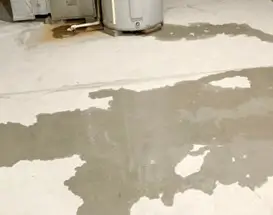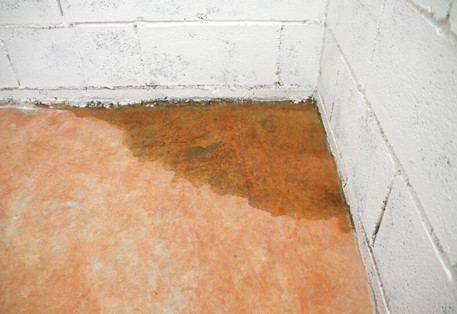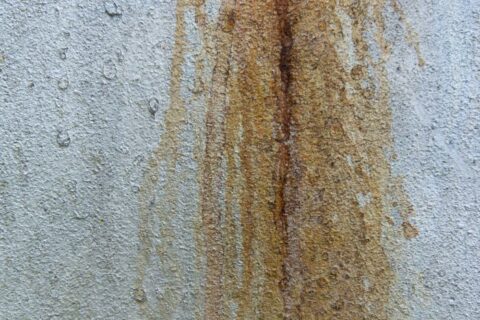How Do I Stop Moisture In My Concrete Floor?

The presence of moisture in concrete floors is a widespread issue that can lead to several undesirable outcomes, including structural damage, mold growth, and a decline in indoor air quality. Addressing this challenge requires an approach that encompasses an understanding of the source of moisture, implementing preventive measures during installation, and ongoing maintenance to keep moisture at bay. This article offers strategies on how to effectively prevent moisture from compromising your concrete floors, ensuring their longevity and contributing to a healthier living space.
Understanding The Source
Identifying the origin of the moisture is critical in devising an effective strategy to prevent its penetration into concrete floors. Moisture can seep into concrete from various sources such as groundwater, rain, or even indoor humidity. Using tools like moisture meters can help pinpoint moisture sources so that a targeted approach can be used to address the issue. Understanding whether the moisture comes from below the slab or as a result of environmental conditions above it will dictate the appropriate course of action.
Proper Installation and Sealing
The foundation of moisture prevention in concrete floors lies in their installation. Incorporating a vapor barrier beneath the concrete slab is a protective measure to block moisture from the ground. This barrier acts as a shield that prevents groundwater from making its way into the porous concrete. Following the curing of the concrete, the application of a high-quality sealer is an important next step. Sealers are designed to create a protective film on the surface of the concrete, repelling water and other liquids, and preventing them from penetrating the porous material.
Climate Control
Maintaining a stable indoor climate is another element to reduce excess moisture. By keeping indoor humidity levels in check, the likelihood of moisture condensing on or seeping into concrete floors is significantly reduced. This is particularly important in climates where humidity levels fluctuate.
Regular Maintenance
Routine maintenance plays an important role in preventing moisture intrusion in concrete floors. Regular inspections can reveal early signs of cracks or damage, which could potentially serve as entry points for moisture. Addressing these issues promptly by filling cracks with a suitable concrete patching compound can stop the infiltration of water and prevent further deterioration of the concrete.
Efficient Drainage
The installation of an effective drainage system around the property can have a substantial impact on reducing moisture levels. Proper drainage involves sloping the ground away from the building’s foundation to prevent water accumulation near the structure. This allows rainwater or melting snow to flow away from the concrete slab.
The Use Of Coatings And Overlays
For additional protection, applying moisture-resistant coating or overlay to the concrete floor can offer an extra layer of defense against moisture penetration. These specialized products are formulated to adhere to the concrete, creating an impermeable barrier. This is especially beneficial in areas that are frequently exposed to water or in environments with high humidity levels.
Professional Moisture Testing
In some instances, determining the extent of moisture in a concrete floor may require professional expertise. Hiring a professional to conduct moisture testing can provide a detailed analysis of the moisture content. They can then offer solutions tailored to address the specific conditions of your floor. This approach ensures that the measures taken are based on accurate data and are most likely to yield effective results.
Addressing Underlying Issues
At times, moisture problems in concrete floors can be indicative of broader issues, such as inadequate drainage or leaks in the building’s foundation. It’s imperative to investigate and rectify these underlying causes to achieve a long-term solution to moisture problems. Neglecting the root causes can result in recurring moisture issues, undermining any preventive measures taken.
Choosing the Right Flooring
When installing flooring over concrete, it’s important to select materials that are inherently resistant to moisture damage. Options like vinyl tile and certain engineered wood products are less likely to be affected by moisture compared to traditional hardwood or carpet. Choosing the right flooring can significantly enhance the moisture resistance of the overall flooring system.
Conclusion
Tackling moisture in concrete floors demands an approach that includes understanding the source of moisture, adopting preventive measures during installation, and maintaining the floor to guard against moisture intrusion. By implementing these strategies, you can protect your concrete floors from moisture-related damage, extending their lifespan and contributing to a healthier indoor environment.
Need Help with Your Concrete Floors?
Catering to various foundation materials like block or poured concrete, Everdry Waterproofing of Wisconsin provides specialized patented waterproofing methods to combat basement moisture. Our commitment to excellence since 1989 is evident in our customized service lifetime warranty and the trust placed in us by over 100,000 satisfied customers.
If you would like more information about the products and services we offer, contact us here.
Ready to Get Started?
Contact Us Today to Schedule a No Pressure, No Obligation, Free Quote!


